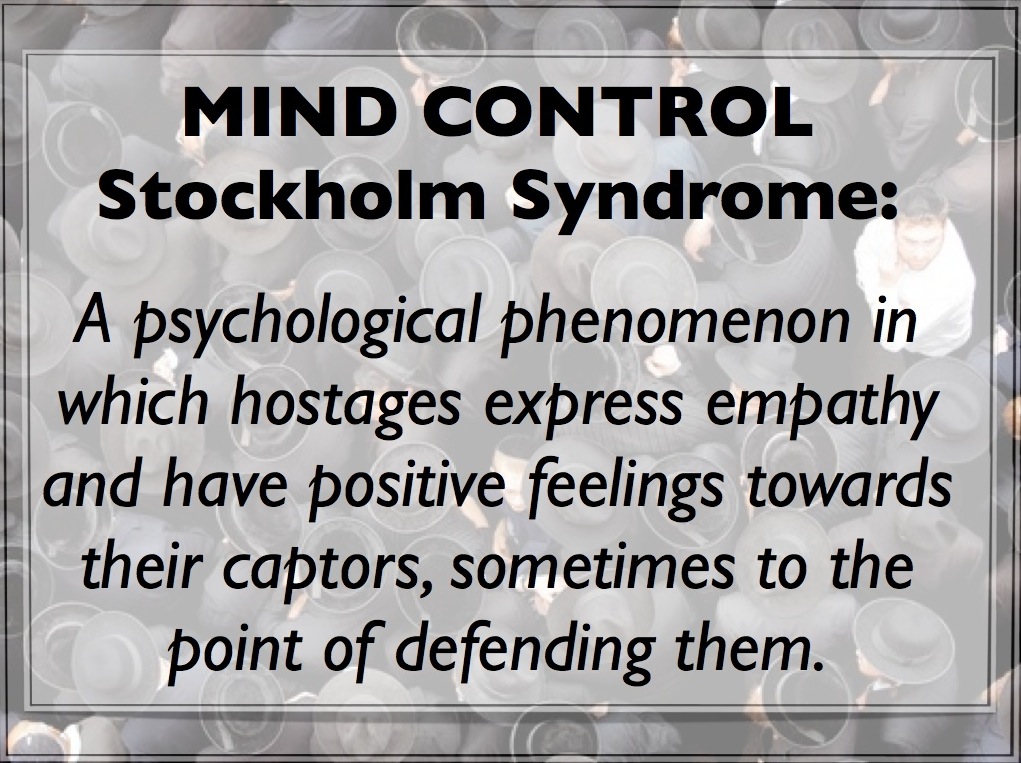Before zooming in to figure out how yours truly fell victim to internet addiction after years of avoidance, I thought it best to read up on how others succumbed.
What are the causes of internet addiction? Why are so many people so regularly clicking and scrolling more-or-less against their will? What are the known patterns? How does internet addiction function — mentally, chemically, and physically? Within those variables, where is the variation? Where are the opportunities to flout the mechanisms?
Sources
While reading TIME magazine after quitting the internet, I came across a blurb by an anti-email, productivity expert – Jocelyn K. Glei. The magazine piece and later all the internet-published words of hers I could find (e.g. this) both made sense and resonated.
Her Twitter feed led me to a well-researched article about Persuasion Science. The author reveals that the producers of content and platforms often shamelessly leverage known-patterns in human psychology to increase “time on device.” His revelations are far more shocking and instructive than the standard incentive-reward/dopamine-circuitry regularly referenced in this type of article.

I’ll just leave this here. – photo PMAI
The Persuasion Science article and the moments of reflection it inspired made me think back to another article I’m regularly recommending. The lead image is someone snorting fake cocaine, laid out to spell F-A-C-E-B-O-O-K. The article amalgamates expert neuroplasticity commentary about the way every action you take re-programs your brain, especially as it applies to interaction with the internet.
As I analyzed how all this research might apply to me, I harkened back to another favorite: How the Internet, Dopamine and your Brain are Working Together to Screw Your Potential (and what you can do about it). A “neuroscience hobbyist” postulates there is a difference between dopamine generated from meeting goals that take hard work and dopamine generated from clicking on “You’ll Be Outraged at How Easy It Was to Get You to Click on This.”

“Why do I always fall for their tricks?!” – photo: wikipedia
In short, I learned plenty.
Of course, being the info junkie that I am, I’m all for you going down a five-hour rabbit hole, reading everything I’ve linked to above and clicking onward to related and fascinating things.
However, in recognition of the frequent lack of utility of info-consumption-binges (which always nudge you toward future potentially-useless binges), I’m summarizing (and heavily quoting or paraphrasing) what I learned.
Double-Edged Sword
Much of my reading illuminated why we often take tools that are supposed to help us and use them in ways that do quite the opposite.
“Because of advances in technology, it’s really easy to see progress when we’re doing relatively meaningless, short-term tasks like processing our email…While it’s incredibly difficult to see our progress when we’re engaged in the long-term creative projects that are really going to have an impact on our lives. And the upshot is that we end up spending an inordinate amount of time on distractions and busy work because it feels like we’re making progress, but that progress is pretty insignificant in the grand scheme of things.” — JKG
I definitely felt subconsciously this loss of large scale progress. Ironically the more I felt the loss (and I suppose the less dopamine I was getting from large scale accomplishments), the more frantically I reached for the easier but ultimately less-valuable sense of accomplishment that comes from the low hanging fruit available from the fountain of endless easy tasks like email and admin work.
“A computer now makes it possible to do in half an hour that which was previously”¦ unnecessary.”
I laughed when I found this unattributed quote in an image created by Ross Parker. The quote embodies the reason I have thus-far refused to get a smart phone: it will open a Pandora’s Box of opportunities that are currently unnecessary in my life. Of course some of those are high quality opportunities, but most just intensify the consequences of the choice paradox afflicting Western society. I prefer control over my brain-space to the glittering lure of convenience. If one doesn’t reduce one’s choice, then one is faced with even more work:
“With email – as with everything else in life — we must learn to say no to some opportunities, in order to say yes to our priorities” — JKG
Email is one of many culprits that have unconsciously become our priority, sucking time away from the things we really care about without giving us the restorative benefits of spending time on what and who we love.
The Puppet’s Strings – Causes of Internet Addiction
Many of us are in denial about the brain-washing that’s so easy to see if you take a moment to look up from your screen and see others around you buried in theirs.
It’s impossible to leverage the benefits of a technology without losing some of your autonomy. Because,
“Whoever controls the menu controls the choices. The news we see, the friends we hear from, the jobs we hear about, the restaurants we consider, even our potential romantic partners — all of them are, increasingly, filtered through a few widespread apps, each of which comes with a menu of options. That gives the menu designer enormous power. As any restaurateur, croupier or marketer can tell you, options can be tilted to influence choices. Pick one of these three prices, says the retailer, knowing that at least 70% of us will pick the middle one.” — paraphrased from 1843
When your interface with the world has been designed by someone else, you’d be crazy to believe you are still in full control. Imagine if you woke up every morning to find your possessions reorganized slightly. Maddening, right? Do you remember the early days of Facebook when their design changes whipped up fury among users who threatened to desert in droves?

Hey! Who moved my cheese?! – photo: chrstphre ã‹› campbell
Facebook hasn’t stopped innovating, they’ve just figured out how to stop calling attention to their control.
(Update 2017: Your Phone is Trying to Control Your Life talks about the history of interface ethics. Less boring: talks about how a handful of young white dudes are indirectly bossing you around.)
And get this: not only is the interface of your device not in your control, but the importance of the device to your life is also not in your control.
“Things that aren’t important to a person are bound up with things that are very important: the machine on which you play games and read celebrity gossip is the one on which you’ll find out if your daughter has fallen ill. So you can’t turn it off or leave it behind.” — 1843
So you don’t control the interface or your device’s roles. You’d think at least your own brain would be on your side, but”¦
“[Things like scrolling Facebook and] checking email activate a primal impulse in our brains to seek out what behavioral psychologists call ”˜random rewards.’ While most emails suck, some are exciting and fun. It’s those random rewards, mixed in with all the mind-numbing updates, that we find so addictive.” — JKG
Okay… no control of interface, device’s role,, or your biology. At least you know how you feel, right? Well purveyors of clickbait know how to change how you feel, how to incite emotion that makes you reactive.
“Whenever we perceive a gap between what we know and what we want to know, that gap has emotional consequences. The curious individual is motivated to obtain the missing information to reduce or eliminate the feeling of deprivation.” —paraphrased from Wired.com

“Ahhhh! Must click. Must see “The 10 Baby Animals You Never Knew Existed”! photo: susana fernandez
The producers of content know which emotions to provoke if they want to successfully rob your attention from tasks that would actually improve your life. And, get this: not only is the content manipulating you, your device is, too.
“A simple experiment at Stanford showed that people spent longer on a task if they were working on a computer which they felt had previously been helpful to them. In other words, their interaction with the machine followed the same “rule of reciprocity” that psychologists had identified in social life.” — paraphrased from 1843
Obviously, the latter is a perfect recipe for getting someone to do something they don’t really want to do”¦ say”¦ scroll newsfeed for 40 minutes without realizing it. Just make sure the device does them a few favors, and the user will pay you back with their attention. Whoa! So content and your device are manipulating you. Anyone else want to jump on the bandwagon? Yup! Content delivery services.
“Sites all over the internet are tracking your clicks so they can please and coddle you with content you already like and know, so their advertising and sales will benefit by your repeated patronage. Their Bubble keeps you looking in your past, to your comfort zone.” – paraphrased from David Rainoshek
The key takeway in this one, I think, is “your repeated patronage.” Which leads us to”¦
The Golden Rule
At the end of the day, the internet and all our devices are factories inciting various human behaviors based on the golden rule.
No, not your Sunday school teacher’s golden rule. Although many well-meaning app designers create with that version in mind.
However the internet functions based on Jafar’s golden rule:
“Whoever has the gold makes the rules.”
“An app succeeds when it meets the user’s most basic emotional needs even before they have become consciously aware of them. When you’re feeling uncertain, before you ask why you’re uncertain, you Google. When you’re lonely, before you’re even conscious of feeling it, you go to Facebook. Before you know you’re bored, you’re on YouTube. Nothing tells you to do these things. The users trigger themselves.
“Companies say, we’re just getting better at giving people what they want. But the average person checks their phone 150 times a day. Is each one a conscious choice? No. Companies are getting better at getting people to make the choices they want them to make.
“The internet’s potential to inform and enlighten is at loggerheads with the commercial imperative to seize and hold the attention of users by any means possible. The job of these companies is to hook people, and they do that by hijacking our psychological vulnerabilities.
“No matter how useful the products, the system itself is tilted in favor of its designers. The house always wins. There is a fundamental conflict between what people need and what companies need.” –
— paraphrased from 1843
Or, as a man I met in a coffee shop put it more succinctly:
“If something is free, you are the product.”
(Update 2017: Just came across this fascinating article. It explains first how our slavery to the internet produces a treasure trove of “Big Data.” That data then allows a frighteningly accurate “psychometric” profile to be created, which allows for terrifyingly effective attempts at behavior influence. A well-known political campaign was one of the most recent beneficiaries of the marriage of Big Data and psychometrics.)
Unsolved (Immunity) Mystery
So that’s how people are getting addicted to the internet.
And obvious conclusions from above are that understanding neuro-biology is the keystone to preventing internet addiction and learning about manipulation science is a cornerstone in your defense fortress.
However.
We still haven’t figured out how I successfully avoided internet addiction for years only to suddenly become a poster-child victim.
Until July 2014, I was mostly impervious to the internet’s seduction. My equivalent of a “screen habit” was spending almost every waking hour inexhaustibly pursuing my dreams.
Why?
I had no idea.
People were always asking.
“Where do you get your endless energy?”
“Are you on meth?”
“How are you so motivated?”
“I don’t know!” I’d cheerfully quip, grin spreading across my face as I raced toward my next goal.
Two years later and dozens of hours of research and reflection later, I do know how internet addiction mechanisms finally started working on me. But part of me wishes I didn’t. Why? Because I earned that knowledge by discovering the bottom of my bottomless drive.
That’s when I finally understood I’d always been moving too fast to be caught in the talons of internet brainwashing.
That’s when I finally learned that the momentum that carried me through life was a force that took years to build and needed constant maintenance.
So what happened?




Hi,
I liked your article, like your writing style. It is scary how much time we spend/waste on the internet, which I avoid days at a time when I’m “living” or interacting with others. However, I find it ironic that it’s through the same source that you reach readers & that is how I ran into your blog, which I truly enjoyed! While browsing through the “Two Ex-Pats” website. . I guess the bottom line is we need to be selective and try to avoid the traps and scams, which is a full time job on it’s own! What have you heard about the site House sit Mexico? Know anyone that has used it? I’d appreciate any info you may provide. Thanks!
Hi Renee,
I agree – the internet can be a source of awesomeness, but it takes a lot of awareness and intentionality to keep it that way, hey.
I haven’t heard of or used House Sit Mexico. The font on the site looks familiar to me, so my first guess is that it’s a regional offshoot of a bigger player. But maybe not. I couldn’t find any reviews either, which makes me think it’s a newer platform. The benefit of new platforms can be decreased competition, but the detriment can be that there are also very few sits.
Good luck in your travels!